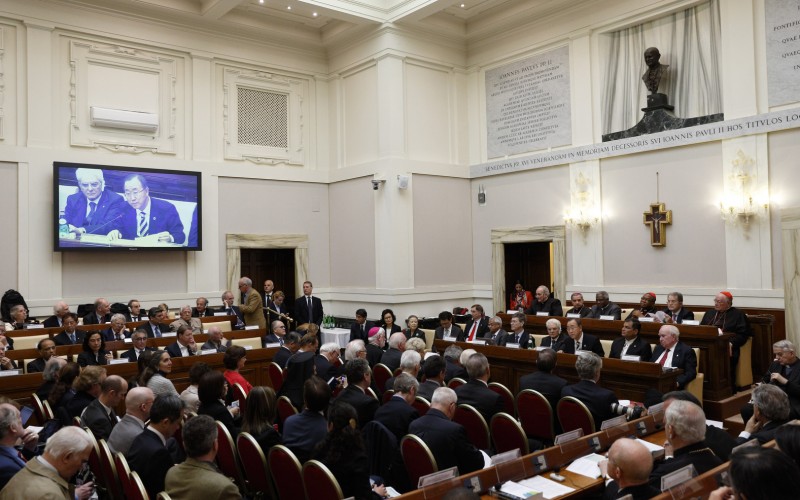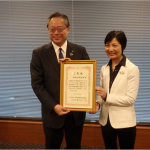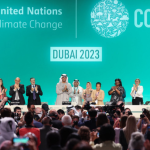バチカン主催「環境サミット」 気候変動への対処は「人間性への道徳的・宗教的義務」と声明。「環境金融」の重要性にも言及(FGW)
2015-05-07 18:33:31


カトリックの総本山であるバチカンが主催し、世界のリーダーを集めて開いた「バチカン・環境サミット」は、地球温暖化による気候変動に対処する断固たる行動をとることは、人間性への道徳的・宗教的義務であるとする声明をまとめた。
バチカン環境サミットには、現ローマ法王のフランシスが、積極的に推進して実現した。フランシスはこれまでの法王とは対照的に、地球温暖化問題にカトリック教会が積極的に関与することと、他の宗教団体にも活動を促す姿勢を明確に打ち出している。

サミットには、国連の潘基文事務総長やノーベル賞受賞者、世界の宗教人ら100人以上の専門家が集まり、温暖化問題に対処する決意をまとめた。声明は「人類の活動によって気候変動が起きていることは科学的事実であり、そうした変動を断固として削減することは人類の義務である」と明確に位置づけた。
そのうえで、「こうした道徳的な課題の解決には、世界の宗教が非常に重要な役割を演じる」と宗教の枠を超えた宗教的連帯を求めた。また、声明は「世界はこの問題を解決する上で、技術的にも、金融手段においても、そして気候変動を削減するノウハウにおいても、いずれもすでに手の内に方法を持っている」と指摘。
特に気候変動の削減と持続可能な発展をバランスさせる金融(環境金融)について、低炭素社会に移行するための新しいインセンティブが強化されるべきだ」と、強調した。また平和の追求することによって、膨大な軍事支出に回っている資金を、持続可能な発展のための緊急投資にシフトさせることが可能になる、としている。
Full text: Declaration of Religious Leaders, Political Leaders, Business Leaders, Scientists and Development Practitioners (28 April 2015)
We the undersigned have assembled at the Pontifical Academies of Sciences and Social Sciences to address the challenges of human-induced climate change, extreme poverty, and social marginalisation, including human trafficking, in the context of sustainable development.
We join together from many faiths and walks of life, reflecting humanity’s shared yearning for peace, happiness, prosperity, justice, and environmental sustainability. We have considered the overwhelming scientific evidence regarding human-induced climate change, the loss of biodiversity, and the vulnerabilities of the poor to economic, social, and environmental shocks.
In the face of the emergencies of human-induced climate change, social exclusion, and extreme poverty, we join together to declare that: Human-induced climate change is a scientific reality, and its decisive mitigation is a moral and religious imperative for humanity; In this core moral space, the world’s religions play a very vital role. These traditions all affirm the inherent dignity of every individual linked to the common good of all humanity.
They affirm the beauty, wonder, and inherent goodness of the natural world, and appreciate that it is a precious gift entrusted to our common care, making it our moral duty to respect rather than ravage the garden that is our home; The poor and excluded face dire threats from climate disruptions, including the increased frequency of droughts, extreme storms, heat waves, and rising sea levels;
The world has within its technological grasp, financial means, and know-how the means to mitigate climate change while also ending extreme poverty, through the application of sustainable development solutions including the adoption of low-carbon energy systems supported by information and communications technologies;
The financing of sustainable development, including climate mitigation, should be bolstered through new incentives for the transition towards low-carbon energy, and through the relentless pursuit of peace, which also will enable the shift of public financing from military spending to urgent investments for sustainable development.
The world should take note that the climate summit in Paris later this year (COP21) may be the last effective opportunity to negotiate arrangements that keep human- 2 induced warming below 2-degrees C, and aim to stay well below 2-degree C for safety, yet the current trajectory may well reach a devastating 4-degrees C or higher;
Political leaders of all UN member states have a special responsibility to agree at COP21 to a bold climate agreement that confines global warming to a limit safe for humanity, while protecting the poor and the vulnerable from ongoing climate change that gravely endangers their lives.
The high-income countries should help to finance the costs of climate-change mitigation in low-income countries as the high-income countries have promised to do; Climate-change mitigation will require a rapid world transformation to a world powered by renewable and other low-carbon energy and the sustainable management of ecosystems.
These transformations should be carried out in the context of globally agreed Sustainable Development Goals, consistent with ending extreme poverty; ensuring universal access for healthcare, quality education, safe water, and sustainable energy; and cooperating to end human trafficking and all forms of modern slavery; All sectors and stakeholders must do their part, a pledge that we fully commit to in our individual capacities.
http://w2.vatican.va/content/vatican/it.html

































 Research Institute for Environmental Finance
Research Institute for Environmental Finance